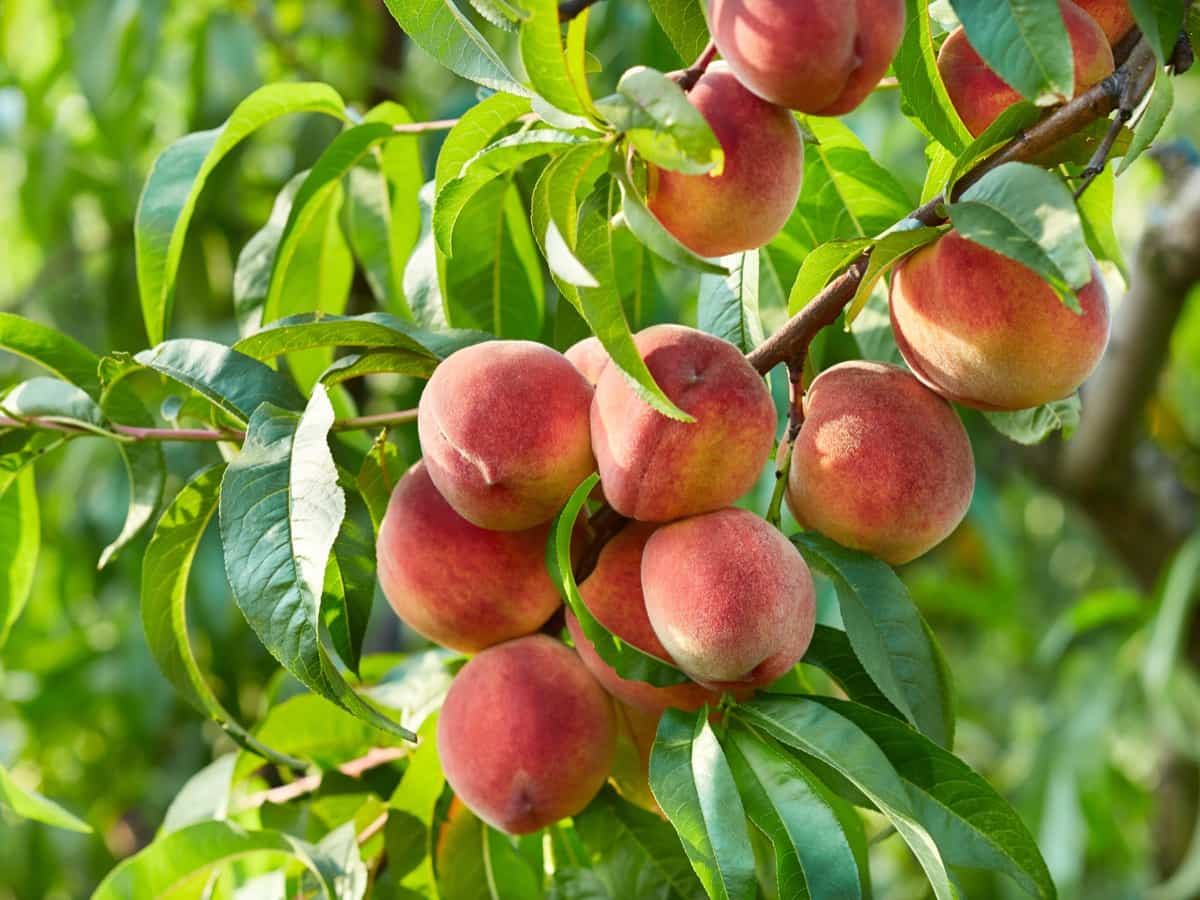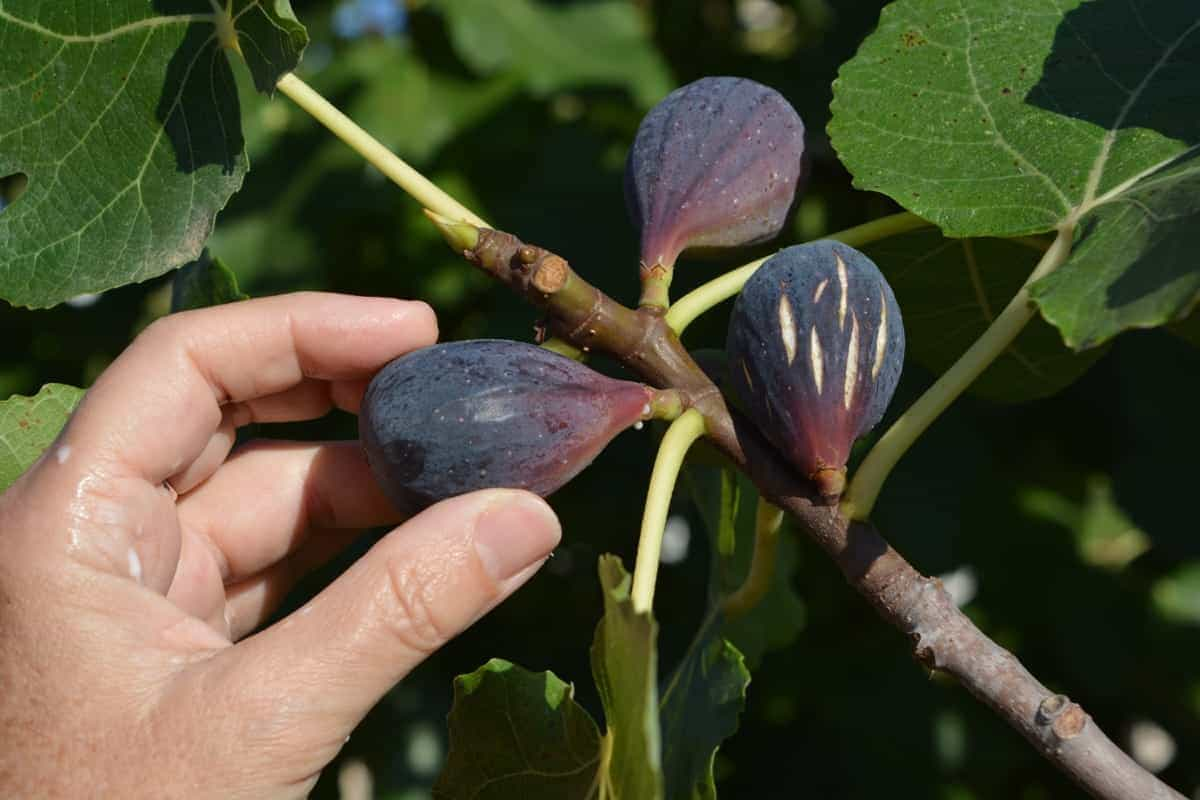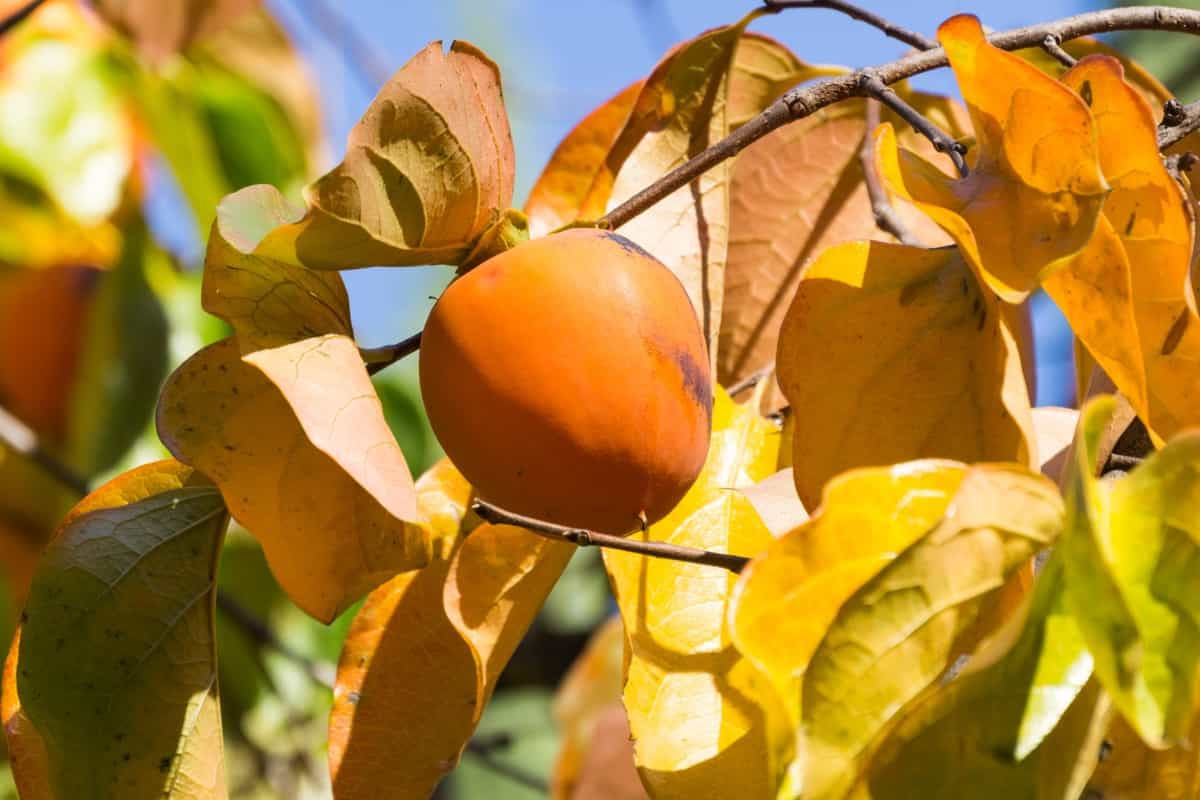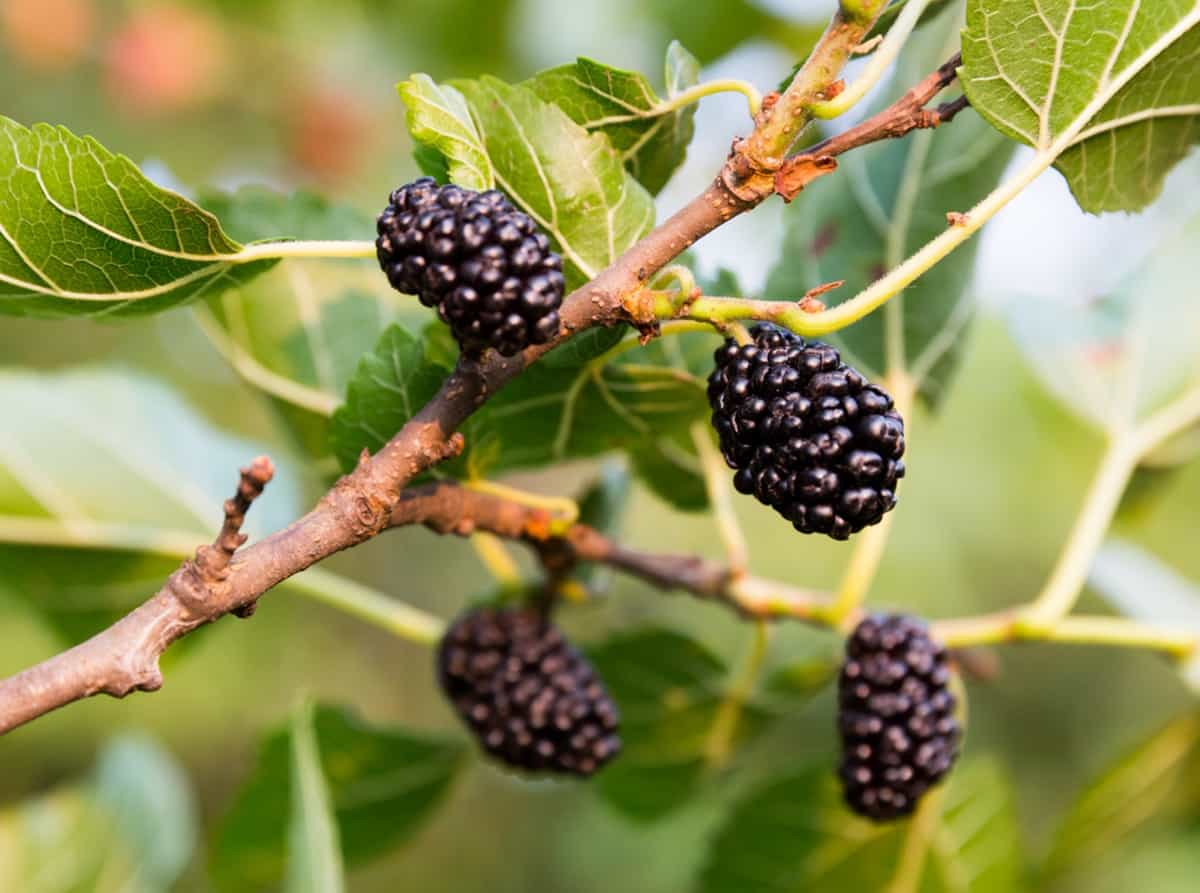With its rich and diverse geography, Virginia offers the perfect setting for various fruit trees to flourish. The answer to the question, “Can fruit trees grow in Virginia?” is a resounding yes. From the verdant landscapes of central Virginia to the more temperate zones of Northern Virginia, fruit cultivation has found a promising home.
While apples, often the first fruit that comes to mind, grow exceptionally well here, the state’s favorable conditions allow a spectrum of fruits to thrive. What kind of fruits grow in Virginia? Well, the list is expansive. For those pondering on the best fruit trees for central Virginia or what fruit trees grow well in Northern Virginia, this guide extensively looks into the varieties suitable for the region. Further, this article will also shed light on when to plant apple trees in Virginia to ensure a bountiful harvest.
Understanding the Virginia Climate for Fruit Tree Cultivation
Virginia boasts a humid subtropical climate which, while experiencing cold winters, provides hot summers that fruit trees love. The state encompasses USDA hardiness zones 5b to 8a. This means that while certain areas might have cold winters, the summers are long and warm enough to ripen a range of fruit trees. The distinct seasons in Virginia, with their predictable temperature changes, make it conducive for many fruit trees to establish themselves and produce prolifically.
Factors to Consider Before Planting Fruit Trees in Virginia
Prior to starting your fruit planting adventure, it’s crucial to grasp the distinct requirements of the trees you’ve selected. Soil quality, drainage, sunlight, and local pests can influence your fruit tree’s growth and yield. While Virginia’s climate is generally conducive for many fruits, selecting a location with the right sunlight exposure and ensuring the soil is well-draining can make a huge difference. It’s also recommended to familiarize oneself with common fruit tree pests in Virginia and consider organic or conventional methods to control them.
Easiest and Best Fruit Trees to Grow in Virginia Climate
Given Virginia’s favorable climate, numerous fruit trees thrive in varied regions. As mentioned earlier, apples are indeed a popular choice, given their adaptability and the varieties available. Peaches, pears, cherries, and plums also make the list. Each of these fruits has multiple varieties tailored to Virginia gardeners’ specific regions and needs, ensuring bountiful yields.
In case you missed it: Easiest and Best Vegetables to Grow in Virginia: Planting Guide for Winter, Summer, and Spring

Best Fruit Trees for Containers in Virginia
Only some have sprawling garden spaces, but that should be fine with you growing fruit trees. In Virginia, container gardening with fruit trees is gaining popularity. Dwarf apple, peach, cherry, fig, and pear tree varieties are best suited for this method. These trees, while smaller in stature, do not compromise on the quantity or quality of the fruit they produce.
Easy-to-Grow Fruit Trees for Virginia Gardeners
Several fruit trees offer easy cultivation for beginners or those seeking minimal fuss in their gardening endeavors. Apples and pears, with their hardy nature, are excellent starters. In addition, figs, persimmons, and mulberries are not only easy to grow but also require very minimal maintenance, making them perfect for Virginia’s budding gardeners.
In case you missed it: Easy and Best Container Plants for Virginia: For Winter, Shade, and Full Sun (Summer)

Top Fruit Trees for Virginia Backyards
Virginia backyards can be transformed into fruit-producing havens with the right trees. Among the top choices are apples and peaches, which are beautiful and productive. Then come cherries, pears, and plums, which provide delicious fruits and add aesthetic appeal with their blossoms and foliage.
Low-Maintenance Fruit Trees for Virginia Landscapes
Several fruit trees fit the bill for those seeking beauty without rigorous care. Persimmons and figs, for instance, require minimal pruning. Apples, especially certain varieties, need less frequent attention, as do mulberries and Asian pears. These trees are perfect for creating a scenic yet productive landscape with minimal effort.
In case you missed it: Best Tasting Tomatoes to Grow in Virginia: Time to Plant, Types, and Varieties

Disease-Resistant Fruit Trees for Virginia Orchards
Disease resistance is a crucial factor, especially when aiming for organic cultivation. Apples, which are often prone to diseases, have multiple resistant varieties perfect for Virginia. Similarly, certain varieties of pears, cherries, plums, and peaches have been cultivated to resist prevalent diseases, ensuring healthy trees and bountiful harvests.
Drought-Tolerant Fruit Trees for Virginia Gardens
While Virginia generally receives ample rainfall, it’s always beneficial to consider drought-tolerant varieties, especially in the face of unpredictable climate changes. Pomegranates and figs top this list due to their natural drought resistance. Persimmons, mulberries, and certain apple varieties also show resilience under water-limited conditions, making them apt choices for drier areas or seasons.
In case you missed it: Mulberry Farming in India: Growing Requirements, Trees Per Acre, Crop Duration, Planting Methods, and Yield

Virginia Fruit Tree Planting Calendar
| Fruits | Best Planting Months |
| Apple | February to April |
| Peach | February to March |
| Cherry | February to April |
| Pear | February to March |
| Plum | February to April |
| Fig | March to April |
| Pomegranate | March to May |
| Persimmon | March to April |
| Mulberry | March to April |
| Raspberry | March to April |
| Blueberry | February to March |
| Strawberry | March to April (as crowns) |
| Blackberry | March to April |
| Grape (for wine & fruit) | March to April |
| Currant | March to April |
Please note that these planting times are based on typical Virginia weather patterns, and USDA hardiness zones 5b to 8a, which covers most of Virginia. It’s always essential to adjust planting times based on specific microclimates and changes in usual weather patterns. Moreover, consult local nurseries or agricultural extensions for the best advice on varieties and exact planting times tailored to specific locations in Virginia.
Selecting the Right Rootstock for Virginia’s Soil
One overlooked aspect of planting fruit trees is the importance of selecting the right rootstock. While the variety determines the fruit’s quality, the rootstock impacts the tree’s overall growth, resilience to certain soil conditions, and sometimes even disease resistance. In Virginia, where the soil can range from sandy loam to clay-rich, understanding which rootstock thrives in your specific soil type can be a game-changer.
Apple trees, for instance, have multiple rootstock options, each catering to different soil and growth conditions. Similarly, choosing the right rootstock for peaches, cherries, or pears can significantly influence their success rate and yield in the Virginia terrain.
Understanding Fruit Tree Pollination in Virginia
Fruit tree pollination is a dance of nature that often requires a bit of orchestration. Most fruit trees need cross-pollination to bear fruit, meaning you’d need to plant two or more varieties within proximity for successful fruiting. Apples and pears are classic examples. However, some trees, like certain peach and cherry varieties, are self-pollinating and don’t need another tree variety nearby.
Virginia’s diverse insect population, including bees, plays a significant role in natural pollination. Hence, understanding the pollination requirements of your chosen tree and ensuring the presence of pollinator-friendly habitats can lead to a more fruitful harvest.
Important Questions and Answers About Virginia Fruit Gardening
| Question | Answer |
| Fruit trees that grow in Richmond, Virginia | Apples, Pears, Peaches, Plums, Cherries, Persimmons, Figs, Berries |
| Best fruit trees for Northern Virginia | Apples, Pears, Cherries, Berries, Plums, Asian Pears |
| Best fruit trees for Central Virginia | Apples, Peaches, Plums, Pears, Nectarines, Persimmons |
| Best fruit trees for Southern Virginia | Peaches, Nectarines, Apples, Plums, Persimmons, Figs, Pears |
| Types of Cherry Trees in Virginia | Sweet Cherry (Prunus avium), Sour Cherry (Prunus cerasus), Yoshino Cherry (Prunus × yedoensis) |
| Fruit picking season Virginia | – Strawberries: Late April to June – Cherries: Late June – Early July – Blueberries & Blackberries: July – Apples: August – October |
| What tropical fruits can grow in Virginia? | Figs, Hardy Kiwi, Asian Persimmons, Pawpaw (though not truly tropical, they have a tropical flavor) |
| Fruits recommended for Virginia Backyards | Apples, Pears, Strawberries, Blueberries, Raspberries, Blackberries, Figs, Pawpaw, Persimmons, Plums |
| Fruit trees that grow in Virginia Beach | Apples, Pears, Peaches, Plums, Nectarines, Figs, Persimmons |
| Native Fruit Trees for Virginia | American Persimmon (Diospyros virginiana), Pawpaw (Asimina triloba), Serviceberry (Amelanchier) |
| Fruits that grow well in winter in Virginia | Very limited fruit production in winter, but you can have stored Apples or winter-harvested Persimmons |
| Fruits that grow well in summer in Virginia | Peaches, Nectarines, Blackberries, Blueberries, Raspberries, Early Apples, Plums, Cherries |
| Fruits that grow well in fall in Virginia | Late-season Apples, Asian Pears, Persimmons, Late-season Grapes |
Conclusion
Virginia’s landscape and climate offer a blend of challenges and opportunities for fruit tree cultivation. From understanding the intricacies of the local climate and soil to mastering the art of pruning, success in fruit cultivation requires knowledge, patience, and passion.
Yet, the rewards, in the form of fresh, home-grown fruits, are worth every effort. Whether you’re looking to create a small fruit haven in your backyard or establish a larger orchard, Virginia stands as a testament to the joys of fruit cultivation. With the right guidance and care, the state promises fruitful seasons year after year.
- Feed Your Flock for Less: Top 10 Tips to Save on Chicken Feed
- Ultimate Guide to Ossabaw Island Hog: Breeding, Raising, Diet, and Care
- Hatching Answers: The Top 10 Reasons Your Chickens Aren’t Laying Eggs
- Eggs and Economics: Breaking Down the Cost of Raising Backyard Chickens
- Defend Your Greens: Proven Methods to Keep Iguanas Out of Your Garden
- Ultimate Guide to Cinnamon Queen Chicken: A Comprehensive Guide for Beginners
- Ultimate Guide to California Tan Chicken: Breeding, Raising, Diet, Egg-Production and Care
- Ultimate Guide to Marsh Daisy Chicken: Breeding, Raising, Diet, and Care
- 10 Types of Chicken Farming Businesses You Can Start for Profits
- Comprehensive Guide to American Mammoth Jackstock: Breeding, Care, and History
- 10 Best Quail Types: Top Breeds to Raise for Eggs and Meat
- Cheap Pig Fencing Ideas: DIY Fencing Solutions for Beginners
- Ultimate Guide to Vietnamese Potbelly Pig: Breeding, Raising, Diet, and Care
- Unlocking the Elegance: A Comprehensive Guide to English Fantail Pigeon
- Unlocking Green Profits: Exploring Carbon Market Opportunities for Ranchers
- From Rescue to Weaning: Ultimate Beginners Guide to Raising an Orphan Calf
- Everything You Want to Know About Pioneer’s New Z-Series Soybeans
- Urban Gardening in Grow Bags: Plant in Small Space and Get Big Harvest
- Ram Mandir’s Role in Ayodhya’s Lotus Cultivation Boom for Farmers: From Sacred to Sustainable
- Ultimate Guide: Launching Your Direct-to-Consumer Beef Business Successfully
- Ultimate Guide to Planting Turmeric in Grow Bags
- Ultimate Guide to Planting Dahlias in Grow Bags
- 10 Reasons Why Your Potted Peony is Not Blooming: Treatment and Remedies
- The Ultimate Guide to Calf Buyback Programs: Maximize Your Herd’s Potential
- From Bag to Table: Growing Sweet Potatoes in Grow Bags
- Best Homemade Bug Spray for Strawberry Plants: Recipe and Application
- Top Intercrops for Melia Dubia: Maximizing Yield and Sustainability Malabar Neem
- Boost Your Garden: Top 10 High-Phosphorus Organic Fertilizers for Healthier Plants
- Guide to Andalusian Horse: Breed Overview, Characteristics, Diet, Care, Lifespan, and Price
- 9 Reasons Why Your Hydroponic Plants Are Not Fruiting: Remedies and Treatment
- 10 Reasons Why Your Lantana is Not Blooming: 100% Effective Solutions for Flowering Issues in Lantana Plant
- How to Utilize a Broody Hen for Hatching and Rearing Baby Chickens
- Mericanel Della Brianza Chicken: Profile, Raising, Diet, Egg-production, Price, and Care
- How to Sell Milk Directly to Amul or Mother Dairy: A Beginners Guide
- How to Fix a Muddy Run Chicken Coop: Solutions for a Mud-Free Chicken Run and Coop
- Creative and Practical DIY Chicken Coop Roof Ideas for Every Backyard